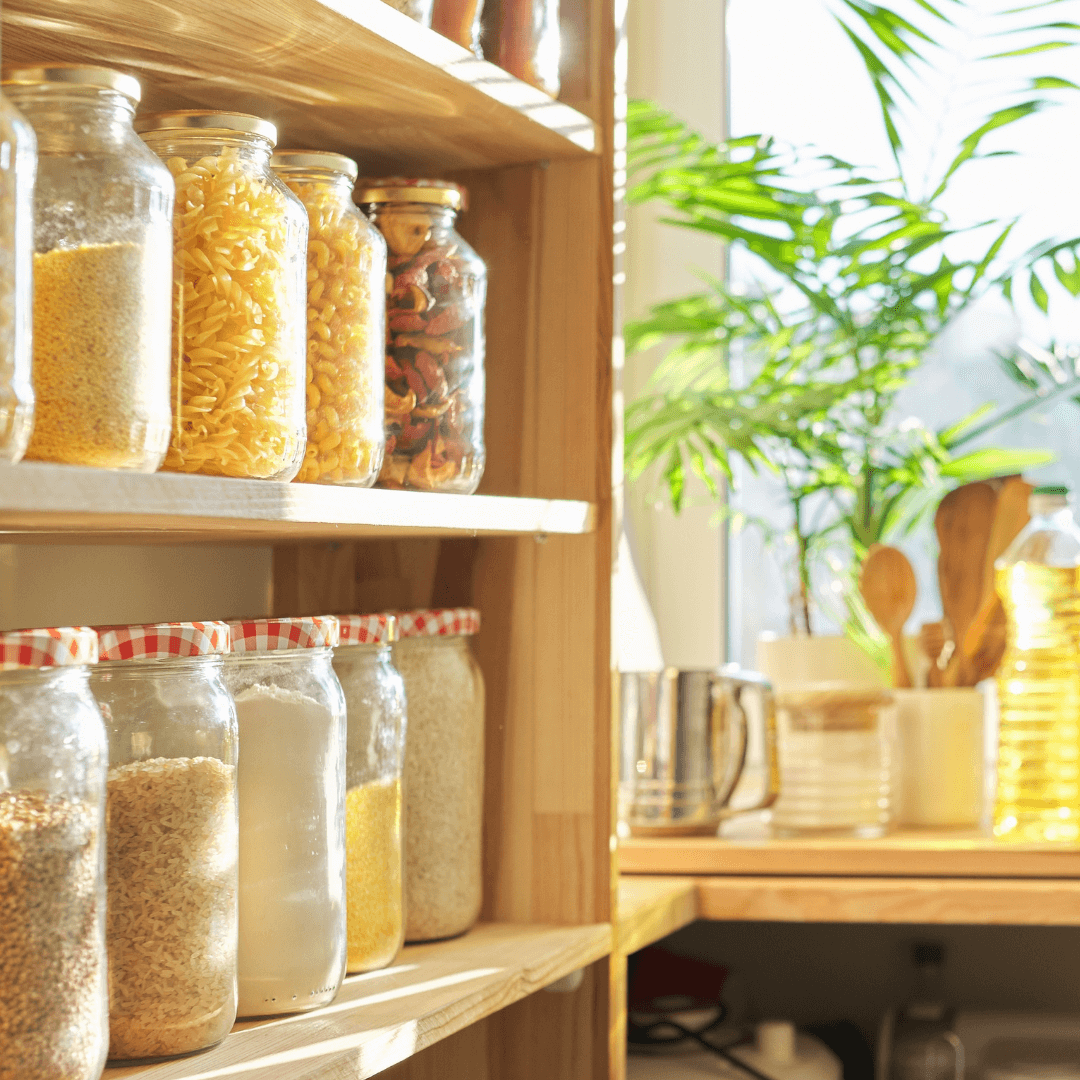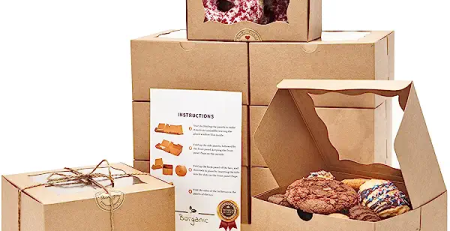Reducing Waste in the Kitchen: Practical Tips for Zero Waste Living
Importance and Benefits of reducing waste in the kitchen
Reducing waste in the kitchen is not only important for the environment but also offers several benefits for individuals and communities.
Here are some key reasons why reducing kitchen waste is significant and the benefits it brings:
- Environmental Impact: Food waste and packaging contribute to environmental degradation. By reducing kitchen waste, you help conserve natural resources, reduce greenhouse gas emissions, and alleviate the strain on landfills. It supports sustainability and helps combat climate change.
- Economic Savings: Throwing away food and other kitchen items means wasting money. By reducing waste, you can save on grocery bills and make better use of the resources you have. Planning meals, buying in bulk, and utilizing leftovers effectively can all contribute to significant savings over time.
- Conservation of Resources: Food production requires extensive resources such as water, energy, and land. When food is wasted, these resources go to waste as well. By reducing kitchen waste, you contribute to the conservation of resources and promote a more sustainable food system.
- Food Security: Food waste is a global concern, while many people still suffer from hunger and food insecurity. By reducing waste in your kitchen, you indirectly help address these issues. When food is utilized efficiently, it can be redistributed to those in need, reducing overall food insecurity.
- Healthier Eating Habits: Minimizing waste encourages mindful consumption and healthier eating habits. It promotes better meal planning, portion control, and the use of fresh ingredients. By focusing on reducing waste, you become more aware of what you eat, leading to a healthier lifestyle overall.
- Reduced Packaging Waste: Many food items come in excessive packaging, leading to unnecessary waste. By choosing products with minimal packaging or opting for bulk items, you can reduce the amount of packaging waste generated in your kitchen. This contributes to reducing the demand for single-use plastics and promotes more sustainable packaging alternatives.
- Community Engagement: Engaging in waste reduction practices in the kitchen can inspire and motivate others in your community to do the same. By sharing your knowledge and experiences, you can promote a culture of waste reduction and sustainability, leading to a positive impact at a larger scale.
- Explore our food and fruit storage containers for convenient and organized food storage solutions.
- Reduce noise and vibration with our noise reduction washing machine support for a quieter laundry experience.
- Keep your refrigerator organized with our refrigerator clear organizer bins for easy storage and access to your food items.
- Simplify dishwashing with our table-top dishwasher with touch control for efficient and hassle-free dish cleaning.
Minimizing Packaging Waste, Sustainable Food Storage
Minimizing packaging waste and promoting sustainable food storage are important aspects of reducing waste in the kitchen. By focusing on these areas, you can significantly contribute to waste reduction and environmental sustainability. Here are some strategies and benefits associated with these practices:
- Discover the latest Nokia mobile prices in Pakistan and find the perfect smartphone for your needs.
- Shop our collection of fashionable and comfortable children’s colorful air mesh sneakers for stylish and comfortable footwear options for kids.
- Bulk purchasing: Buying bulk items can help minimize packaging waste. Look for stores that offer products in bulk, such as grains, legumes, and spices. By purchasing in larger quantities, you can reduce the amount of packaging waste generated.
- Reusable containers: Instead of relying on disposable packaging, opt for reusable containers for storing leftovers, packed lunches, or pre-prepared meals. Use glass jars, stainless steel containers, or reusable silicone bags. These alternatives are durable, easy to clean, and significantly reduce the need for single-use packaging.
- Beeswax wraps: Replace plastic wrap and aluminum foil with beeswax wraps. These wraps are made from cotton fabric coated in beeswax, creating a reusable and sustainable food storage solution. They can be used to cover bowls, wrap sandwiches, or preserve produce, reducing the need for disposable cling film or aluminum foil.
- Mason jars: Mason jars are versatile and can be used for various purposes in the kitchen. They are ideal for storing bulk ingredients like grains, nuts, and dried fruits. Additionally, they can be used to store homemade sauces, dressings, or meal preps, eliminating the need for single-use plastic containers.
- Composting: Utilize composting to manage food scraps and organic waste. By composting, you divert waste from landfills and create nutrient-rich soil for your garden. Invest in a compost bin or create a compost pile in your backyard. Composting reduces methane emissions from food waste decomposition and helps close the loop on the nutrient cycle.
- Reusable shopping bags: When grocery shopping, bring your own reusable shopping bags to avoid accumulating plastic bags. Keep a few bags in your car or near the front door to ensure you always have them handy. This simple habit helps reduce plastic waste and encourages others to do the same.
- Enhance your home decor with artificial plastic eucalyptus plants for a touch of greenery.
- Add a rustic and modern touch to your home and kitchen shelf with wooden rustic modern decorations.
Smart Grocery Shopping, Composting and Food Scraps
- Smart grocery shopping: Practicing smart grocery shopping involves planning and making conscious choices to minimize waste. Here are some strategies:
- Make a shopping list: Plan your meals in advance and create a shopping list accordingly. This helps prevent impulse purchases and ensures that you buy only what you need.
- Buy in bulk: Purchasing items in bulk reduces packaging waste and often offers cost savings. Consider buying staple foods, such as grains, beans, and spices, in larger quantities.
- Choose fresh produce wisely: Buy fresh fruits and vegetables in quantities that you can realistically consume before they spoil. Opt for loose produce instead of pre-packaged items when possible.
- Check expiration dates: Pay attention to expiration dates to avoid buying perishable items that may go to waste. Place newer products behind older ones in your pantry or fridge to ensure they are used before they expire.
- Composting: Composting is an effective way to manage food scraps and organic waste. Here’s how you can incorporate composting into your routine:
- Set up a compost bin or pile: Create a designated space in your backyard for composting or use a compost bin if you have limited outdoor space. Follow composting guidelines for proper layering of food scraps, yard waste, and other organic materials.
- Compostable materials: Add fruit and vegetable peels, coffee grounds, tea bags, eggshells, and yard waste to your compost. Avoid adding meat, dairy, and oily foods as they can attract pests.
- Turn and maintain the compost: Regularly turn the compost pile to aerate it and speed up decomposition. Maintain the right balance of moisture and carbon-rich “brown” materials (like dry leaves or shredded paper) and nitrogen-rich “green” materials (like food scraps or grass clippings).
- Use compost in your garden: Once the compost has fully decomposed, use it as nutrient-rich soil amendment in your garden to promote healthy plant growth.
- Food scraps management: Properly managing food scraps can further minimize waste and maximize resource utilization:
- Reduce food waste: Plan meals and portion sizes to avoid leftover food that goes uneaten. If you have leftovers, store them properly for future consumption or donate them to food banks or local shelters.
- Repurpose food scraps: Get creative with using food scraps. For example, vegetable peels can be used to make stocks or broth, and stale bread can be transformed into breadcrumbs or croutons.
- Learn about edible parts: Many food scraps that are commonly discarded are actually edible and nutritious. Educate yourself about utilizing the entire vegetable, including leaves, stems, and peels, in your cooking.
- Use food scraps for homemade compost: Instead of throwing food scraps in the trash, save them for composting. By composting food scraps, you divert them from landfills and turn them into valuable fertilizer.
- Decorate your walls with a set of 5 pieces of Scandinavian natural decor acrylic wall decorative mirrors for a stylish and contemporary look.
- Keep your living room, kitchen, or coffee table organized with a utensils holder that combines functionality and aesthetic appeal.
- Discover unique and abstract style sculptures that make great housewarming gifts for friends and loved ones.
Meal Planning and Cooking Tips, Engaging the Family and Community
- Meal planning:
- Plan your meals for the week: Take some time to plan your meals ahead of time. This allows you to make a comprehensive grocery list and ensures that you only buy what you need, reducing the chances of food waste.
- Consider ingredients overlap: Look for recipes that use similar ingredients to minimize waste. For example, if one recipe calls for half a bunch of cilantro, find another recipe that can use the remaining cilantro.
- Embrace leftovers: Incorporate leftover ingredients or meals into future meal plans. Be creative and repurpose them into new dishes or incorporate them as ingredients in other meals.
- Freeze leftovers: If you have leftover portions that won’t be consumed immediately, freeze them in individual servings for future quick and easy meals.
- Eco-friendly cooking practices:
- Use energy-efficient appliances: Opt for energy-efficient appliances in your kitchen, such as induction cooktops or convection ovens, to reduce energy consumption while cooking.
- Cook with lids on: Cooking with lids on pots and pans helps retain heat, reducing cooking time and energy usage.
- Optimize oven use: When using the oven, try to cook multiple dishes simultaneously to make the most efficient use of the energy being used.
- Use the right-sized cookware: Choose appropriately sized cookware for your stovetop burners to avoid unnecessary energy loss.
- Engaging the family and community:
- Educate your family and friends: Share information about the importance of reducing waste and the benefits of eco-friendly practices. Discuss the environmental impact of food waste and ways to implement changes in daily routines.
- Involve family members in meal planning and preparation: Engage your family members in meal planning discussions and involve them in meal preparation activities. This helps foster a sense of ownership and responsibility towards minimizing waste.
- Share recipes and tips: Share your favorite zero-waste recipes and cooking tips with your family, friends, and community. Encourage them to do the same and create a collaborative environment for eco-friendly cooking.
- Organize community events: Organize workshops, cooking classes, or community potlucks to promote eco-friendly and zero-waste cooking. Invite guest speakers or local experts to share their knowledge and experiences.
- Accentuate your home decor with a set of ceramic vases featuring a modern farmhouse design.
- Create an aesthetic ambiance in your room with a tree light for room decor that adds a warm and cozy atmosphere.
- Add a touch of farmhouse charm to your bathroom with GBTROO bathroom mason jar wall art sconces featuring handmade fall decor and remote control LED fairy lights.












